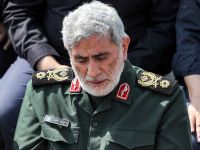Lebanese Finance Minister Ali Hassan Khalil Thursday said that the government aims to reduce the budget deficit by nearly one percentage point from last year’s, from 9.3 down to 8.7 percent.
Speaking at a news conference, Khalil revealed the details behind the recently agreed upon 2017 state budget.
The budget projects LL23.67 trillion ($15.7 billion) in spending and LL16.38 trillion ($10.8 billion) in revenues, Khalil said.
He also said that the public sector salary hike has been included in the budget, but is waiting on Parliament to agree on its distribution.
"We will tackle issues of squandering, including with customs, and reform the ports as well," the finance minister said.
Khalil also announced that Cabinet, along with the Central Bank, have worked on a new system aimed at managing funds to prevent further squandering, as well as a plan for the next two months to combat corruption and promote investments.
He added that Parliament could revise some of the proposed tax measures, which led to a wave of protests from syndicates and civil society organizations.
"The new state budget demonstrates the government's reformist politics," he said.
The finance minister added that there will be increased funds in several sectors, including the health and education sectors.
Khalil also said that Cabinet discussed issues of corruption and public money squandering when designing the state budget.
Cabinet agreed on a state budget Monday night, following 14 heated meetings.
Incorporating the financing of a high-demand public sector wage hike also played a role in delaying the decision.
Lebanon has not ratified a state budget since 2005 due to political bickering between rivals.
This has led to extra-budgetary spending in the billions of dollars, which has left the country’s battered economy burdened with over $74 billion in public debt.








